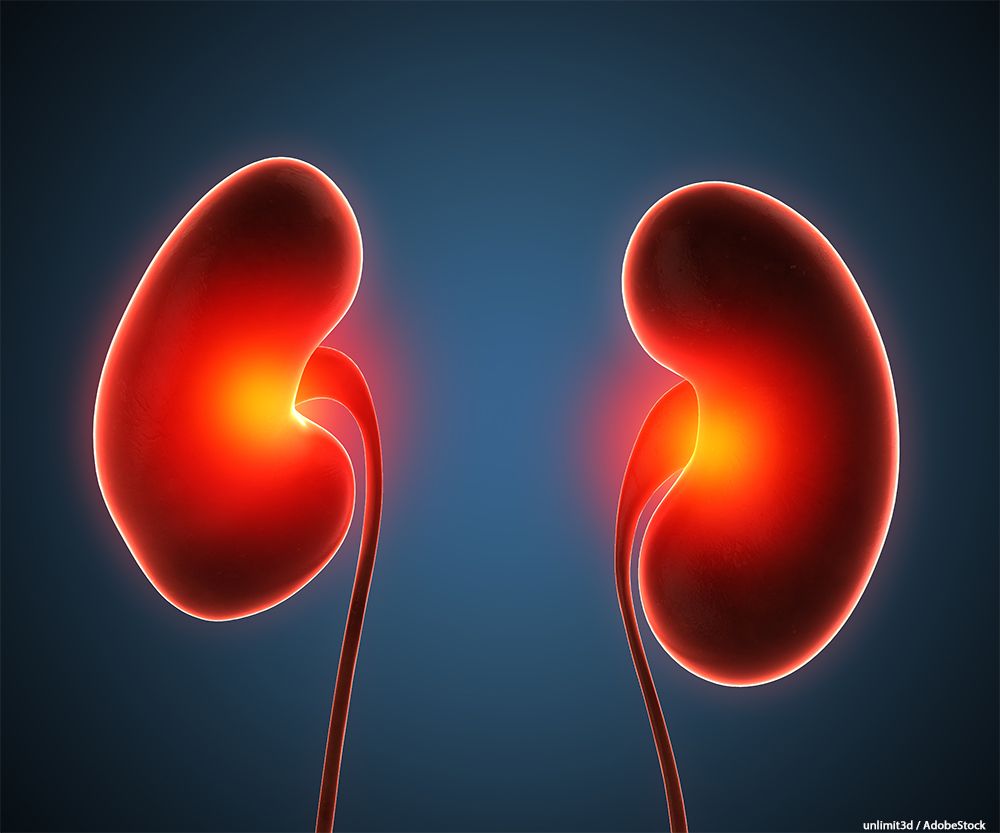Belzutifan Combo Shows Antitumor Activity in Clear Cell Renal Cell Carcinoma
Results from a phase 2 study support additional clinical trials assessing belzutifan-based regimens for patients with advanced clear cell renal cell carcinoma.
Combination treatment with belzutifan (Welireg) and cabozantinib (Cabometyx) demonstrated anti-tumor activity in patients with advanced clear cell renal cell carcinoma (RCC), according to findings from a phase 2 trial (NCT03634540) published in Lancet Oncology.
"The current study adds to a growing body of early phase trial results that suggest meaningful clinical activity from HIF2 inhibition in patients with sporadic clear cell RCC," according to an expert from Fred Hutchinson Cancer Center.

The confirmed objective response rate (ORR) for patients receiving belzutifan plus cabozantinib was 30.8% (95% CI, 18.7%-45.1%), which included complete responses (CRs) in 2.0% of patients and partial responses (PRs) in 29%.0. The median time to response was 3.2 months (interquartile range [IQR], 1.9-7.3), and 87.0% of patients experienced reductions in the sum of diameters of target lesions. Additionally, 17% of patients had an ongoing response at the time of data cut-off, including 1 patient with an initial PR who remained on treatment following progressive disease who subsequently had a CR.
“The current study adds to a growing body of early phase trial results that suggest meaningful clinical activity from HIF2 inhibition in patients with sporadic clear cell RCC,” Scott S. Tykodi, MD, PhD, associate professor and director of Kidney Cancer Research at Fred Hutchinson Cancer Center and the University of Washington, stated in a written comment to CancerNetwork®.
Investigators of this ongoing, open-label, single-arm phase 2 study are evaluating belzutifan plus cabozantinib as treatment for those with advanced clear cell RCC across 10 hospitals and cancer centers. Patients enrolled into 2 cohorts: cohort 1 included those with treatment-naïve disease, and cohort 2 included those with locally advanced or metastatic clear cell RCC. All patients received 120 mg of belzutifan orally once a day plus 60 mg of cabozantinib once daily until disease progression.
The primary end point is investigator-assessed ORR. Secondary end points include duration of response (DOR), time to response, progression-free survival (PFS), and overall survival (OS).
Patients 18 years and older who had measurable disease based on RECIST v1.1 criteria were eligible for enrollment on the trial. Patients also needed to have an ECOG performance status of 0 or 1 to enroll.
Investigators included a total of 52 evaluable patients in cohort 2 who received at least 1 dose of study drug. The median patient age was 63.0 years (IQR, 57.5-68.5), 73% of patients were male, and 92% were White. Most patients had an ECOG performance status of 1 (56%), intermediate-risk disease (71%), 1 prior line of therapy for cancer (56%) and underwent prior nephrectomy (81%).
The median DOR was 18.6 months (95% CI, 8.3-22.8). Additionally, the median PFS was 13.8 months (95% CI, 9.2-19.4), and the estimated 12-month PFS rate was 56.2% (95% CI, 40.5%-69.2%). The median OS was 24.1 months (95% CI, 20.0-37.4), and the estimated 12-month OS rate was 76.5% (95% CI, 62.3%-85.9%).
All 52 patients had at least 1 all-cause adverse effect (AE), and grade 3 to 5 AEs occurred in 73% of patients. The most common grade 3/4 AEs included hypertension (27%), anemia (15%), fatigue (12%), and increased alanine aminotransferase (6%). There was a single grade 5 instance of respiratory failure.
AEs led to dose reductions of belzutifan for 27% of patients, and 58% had AEs leading to dose interruptions. The most common AE leading to dose reduction was fatigue in 8% of patients. Additionally, fatigue and diarrhea in 10% and 8% of patients, respectively, primarily led to dose interruptions.
Tykodi also discussed the next steps for researching belzutifan in this patient population.
“Advanced phase trials that swap lenvatinib [Lenvima] for cabozantinib are testing belzutifan plus lenvatinib versus cabozantinib in the treatment refractory setting [NCT04586231], and the addition of belzutifan to lenvatinib and pembrolizumab [Keytruda] as frontline therapy [NCT04736706],” Tykodi stated.
Reference
Chouieri TK, McDermott DF, Merchan J, et al. Belzutifan plus cabozantinib for patients with advanced clear cell renal cell carcinoma previously treated with immunotherapy: an open-label, single-arm, phase 2 study. Lancet Oncol. Published online March 31, 2023. doi:10.1016/S1470-2045(23)00097-9